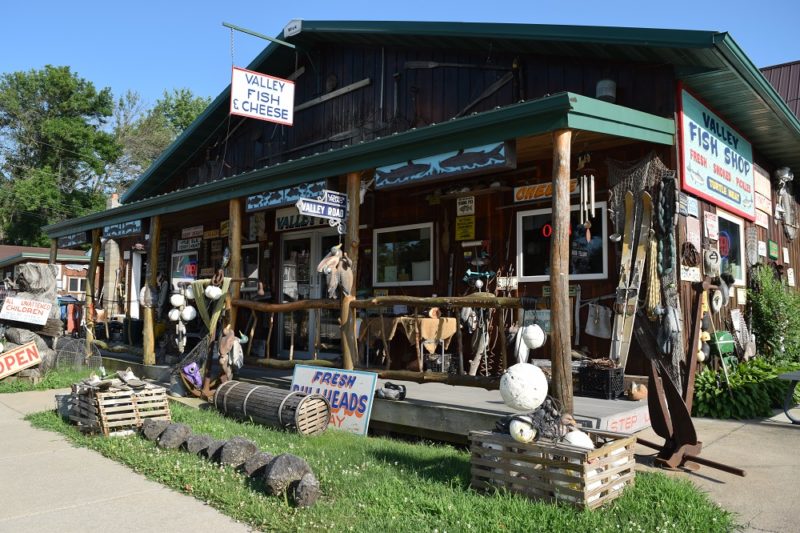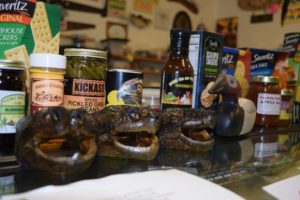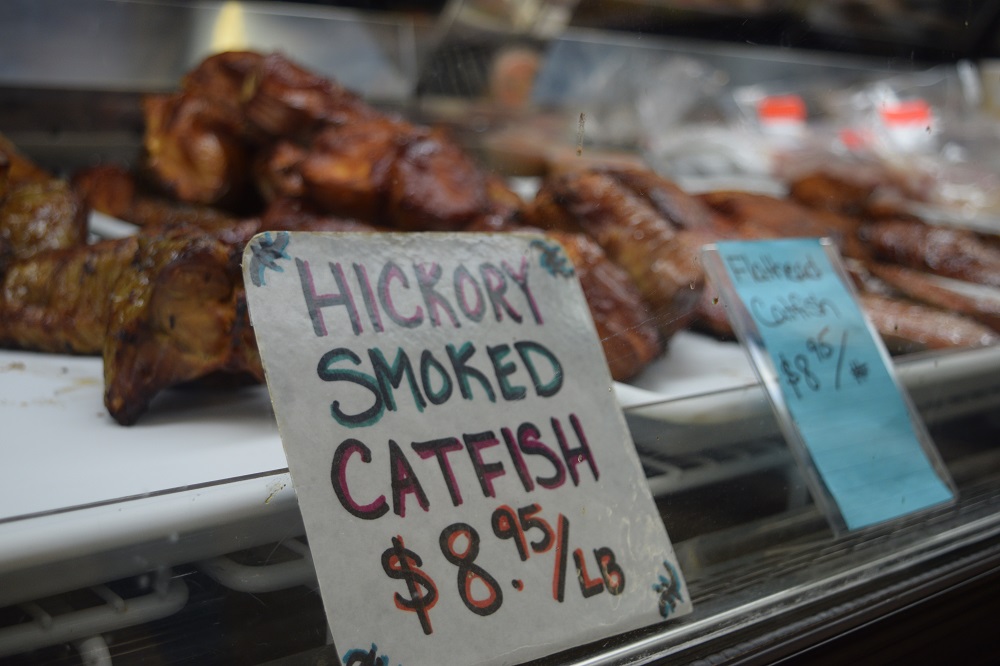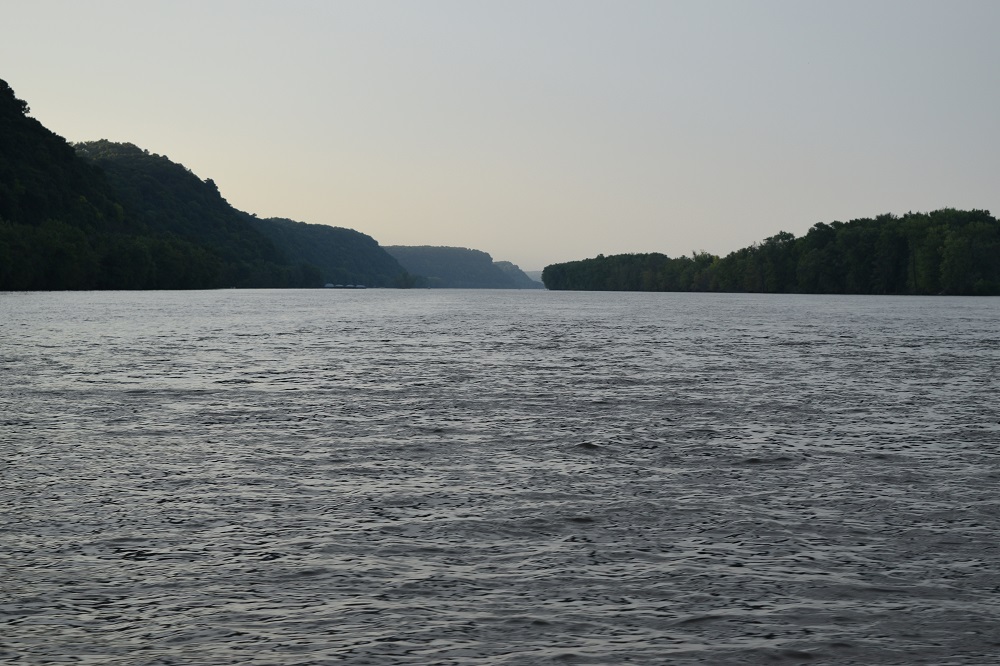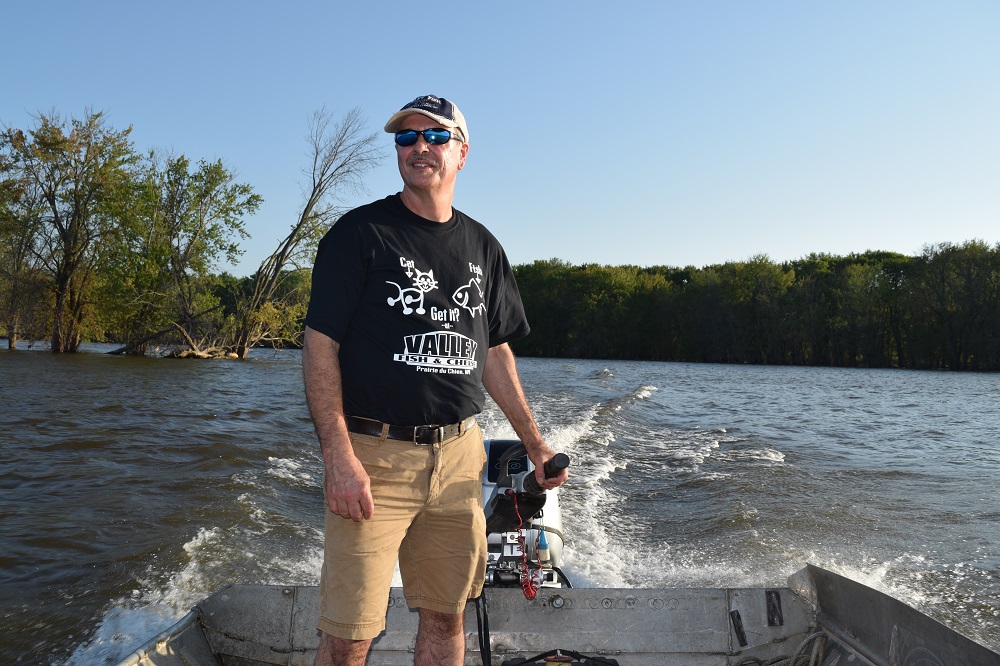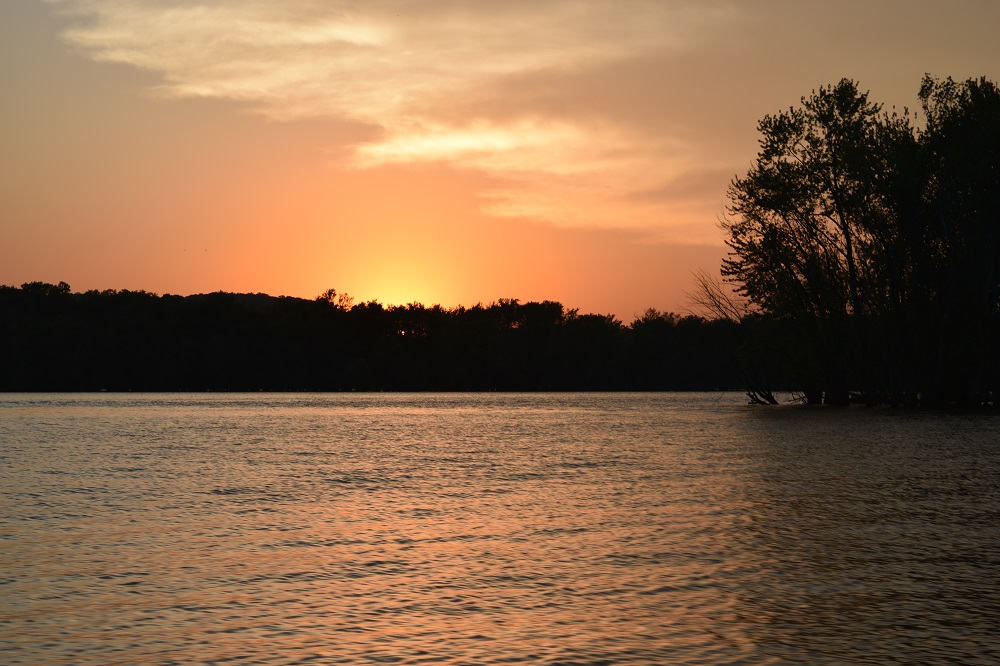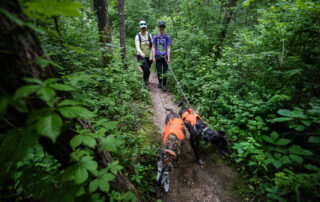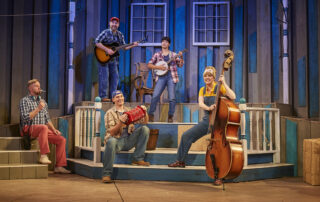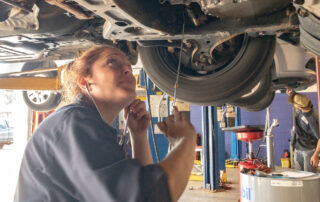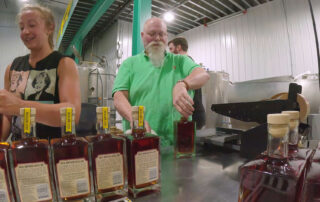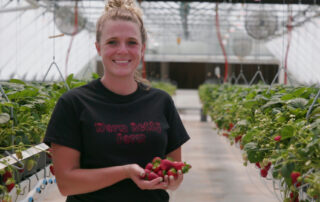Mike Valley is perched in his fishing boat, taking in the scene around him. It’s idyllic — birds are chirping and small waves gently brush up against the side of the boat. It’s mid-July and one of the hottest days of the year.
Valley is a third generation fisherman from Prairie du Chien and owner of Valley Fish & Cheese. He’s spent his life on the Mississippi River.
Even after the millions of pounds of fish Valley has caught, he still describes being out on the water as peace and tranquility.
“Sitting here right now, this is just absolutely beautiful to me,” he said. “To get out of that phone ringing, people talking, all day, every day … it’s just, ah.”
Both his father and his grandfather made their living on the river, selling their fish wholesale. Valley does too, but his business has evolved to fit a changing river and way of life.
The river is a different place than it was when his father and grandfather fished it to make their living.
Flooding has turned an already unpredictable river into a force to be reckoned with. And a changing market pushed Valley away from the wholesale model into retail.
- Turtle heads for sale at Valley Fish & Cheese. (Mary Kate McCoy/WPR)
- Inside Valley Fish & Cheese. (Mary Kate McCoy/WPR)
In the early 1980s, he says he saw the writing on the wall.
As the equipment it took to catch and sell fish became more expensive, an important piece of the operation didn’t keep pace: the price of fish.
“In 1980, for instance, a new truck was $3,000, now it’s $50,000. Gill netting was $3 a pound, now it’s $15 a pound,” Valley said. “And in 1980 buffalo (fish) were 30 cents a pound, now they’re a quarter.”
Retail allowed him to set the price of the fish he caught and smoked at his shop.
When his father ran his markets in the mid-1970s, Valley said there were roughly 125 part-time and full-time commercial fishermen in the area.
“Now there’s five, and most of us are pushing 60 years or older … there’s just nobody left, and within 20 years there will be nobody left,” he said.
Even as local produce and meat have surged in popularity from the farm-to-table movement, fish hasn’t seen an equivalent river-to-table boost. Valley says part of the reason is that fresh fish isn’t cheap, he estimates his fish costs double that off the truck.
And the work is hard — extremely hard. Valley puts in 90 hours a week, often more. He catches fish like catfish, carp, buffalo and sturgeon, cleans it (sometimes up to four times) and brines it for half a day.
Valley then smokes the fish for about 12 hours in a 100 percent wood smoker. The small smokehouse can reach almost 200 degrees.
“A catfish caught out of this river by me is completely, totally different than what you’re going to get off the truck … because it was swimming yesterday, and was smoked today. Yeah, it’s to die for,” Valley said.
And the number of customers reflects that hard work. Even past closing time, stragglers were coming into the shop looking for his smoked fish.
Valley jokes about a ‘law’ he has at Valley Fish & Cheese when customers make a modest purchase — once you buy it and leave the door, you can’t come back in and buy more.
The shop is packed full with his catch, along with his homemade sausage and jerky, and products from outside the river like cheese, alligator jerky and smoked salmon.
Valley doesn’t like to waste anything. After he makes snapping turtle jerky, he tans the skin and preserves the shells and heads to sell. Coon skulls, lynx tails and deer hooves — the list goes on – also line the shelves.
“I always like to say, ‘We sell shit you can’t get at Wal-Mart,’ he says with a chuckle.
But the Mississippi River is changing — flooding has become a constant concern. In mid-July, he said the river had been flooded since March and was still about 6-feet higher than it should be.
While this year is unprecedented, Valley said it’s been building for the last 15 years or so.
“The river has changed unbelievable, the flooding is way, way worse than it was,” he said while in his fishing boat. “To give you an instance, where we’re sitting here right now is about a foot deep. Well, there’s no way you could set a net up here, but this is full of fish.”
It’s full of fish because of the trees on the island — bugs are attracted to the trees, then fall into the water for the fish to eat. It’s much easier for the fish to catch bugs in water that is a foot deep, than water that is 10-feet deep where Valley can set his nets.
“We can’t get at them up here, if there was no water on this island, they’d be right there in that gut where we would normally set,” he continued.
What used to take Valley one hour to do, now takes him three.
The high water also brings a stronger current. Strong current, and wind in its own right, are a fisherman’s worst enemy. It makes it difficult to set and keep nets in place and affects where fish swim.
Spending a lifetime on the river has given Valley a unique appreciation and perspective. He says it’s impossible not to become a conservationist.
“Wholesale you want to sink the boat everyday because that’s more money in your pocket,” he said. “Retail, I closely figure what I’m going to need for that day and that’s what I set nets for.”
But as fewer and fewer people are making a living on the river, it’s unclear who will take over Valley’s shop and others like it.
“In 15 years … my market will be gone, all the fresh fish markets will be gone,” he said. “What a machine can filet and press out … the art will be totally lost, it isn’t sustainable anymore. That’s what the saddening part of it is.”
“Everybody says, ‘Why don’t you slow down, quit making that or this?’ You can’t,” he continued. “I’d rather go out like a good quarterback or rock n’ roll star, I want to fall off the cliff, I don’t want to climb down over the cliff.”
So for now, Valley will keep doing what he loves — bringing fish from the river, to the table.
==
SONG: “Red Valley Blues” by Joe Price
